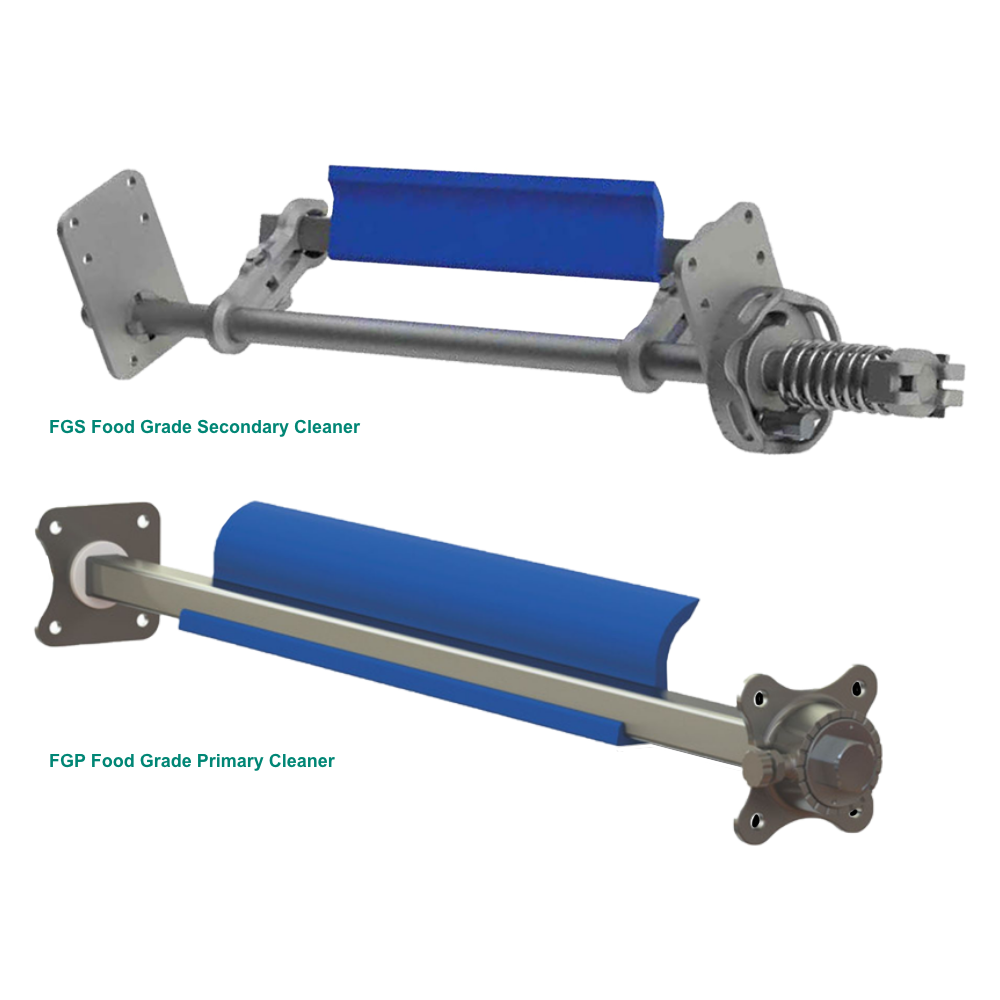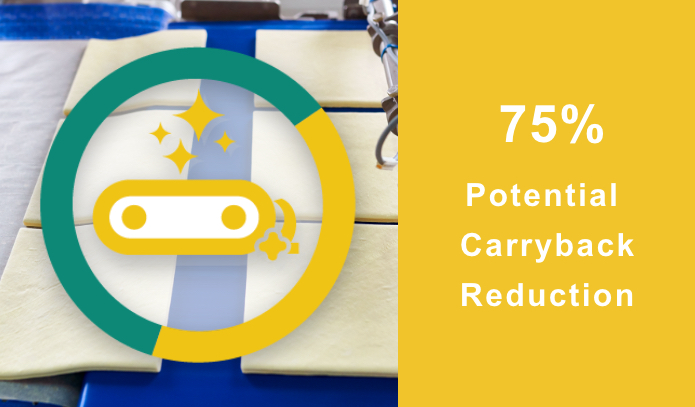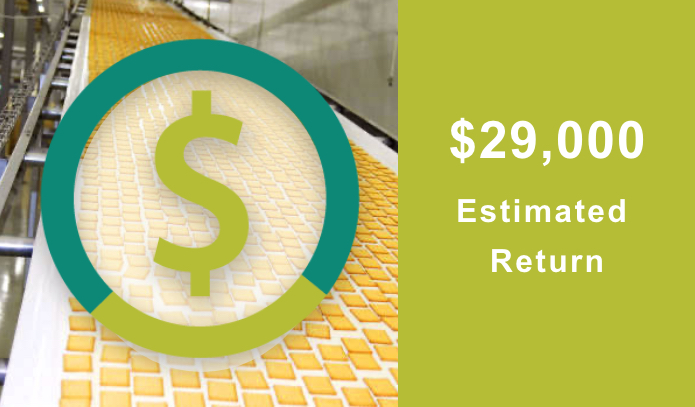

Keeping belts clean at your industrial bakery is more than a sanitation issue. It is essential to your productivity and your bottom line.
Scroll down to see how the Flexco FGP Food Grade Primary Cleaner helped one industrial bakery reduce carryback and maintenance costs to generate a $29,000 ROI annually. Then complete our ROI calculator to discover what you could be saving at your commercial bakery.
With an average downtime cost of approximately $10,000 an hour, on top of the fee required to bring a vulcanizing crew out as needed, this industrial bakery was desperate for a change on one of their primary production lines. Then they discovered the Flexco FGP Food Grade Primary Cleaner.
The FGP Food Grade Primary Cleaner and FGS Food Grade Secondary Cleaners from Flexco are easy to install, easy to maintain, and disassemble in under a minute for regular cleaning and sanitization. Along with their excellent cleaning efficiency the cleaners feature stainless-steel components and food grade materials that limit crevices and opportunities for bacteria growth.

For a large industrial bakery, carryback from one of their primary production lines was a major problem. It caused regular damage to their 2-ply polyurethane food grade belting and caused endless splices to fail, requiring emergency visits from splice crews. On top of the crew’s fees, the industrial bakery was losing $10,000 per hour of downtime.

The industrial bakery discovered the Flexco FGP Food Grade Primary Cleaner and found the ease of installation and quick disassembly and reassembly allowed for stringent cleaning and sanitation. The FGP also features a metal detectable UHMW blade option and stainless-steel components that meet the exacting standards of the operation. With the ability to reduce carryback by at least 75%, the FGP Food Grade Primary Cleaner significantly reduced belt damage being caused by the carryback.

This industrial bakery estimates an approximate $9,000 in annual savings because they have increased the life of their belts and have reduced the frequency of paying to have new belts installed. The maintenance crew is also able to focus on proactively splicing belts and performing other maintenance activities during scheduled downtimes. Additionally, preventing even two hours of downtime with fewer belt failures would produce $20,000 in savings for a total estimated return of $29,000.
